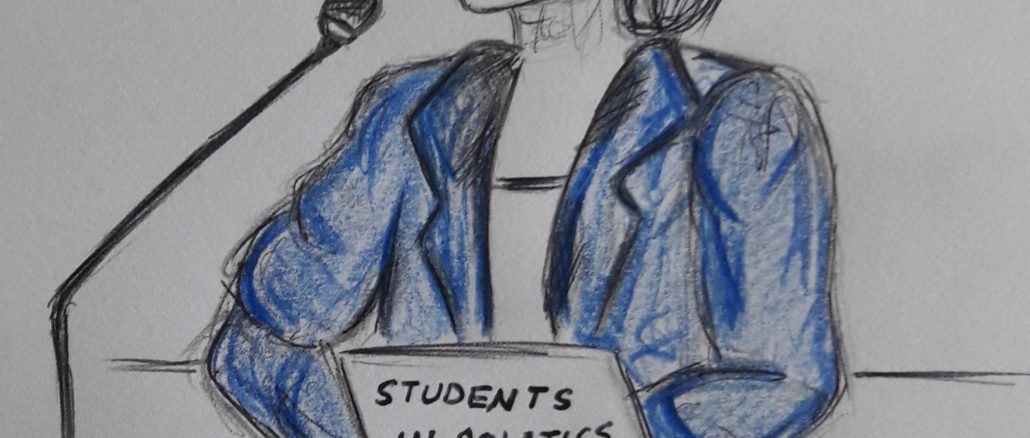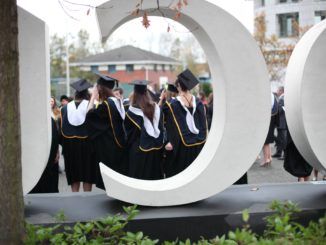
[dropcap]I[/dropcap]n the Mezz, on couches worn out by students of DCU past and present, an informal talk was held about female engagement in politics. Its attendance counted twice as many men as women.
Being a microcosm of Irish politics on a whole it should come as no surprise that female engagement in Student Union affairs has been lacking throughout the years. This year’s SU’s full time sabbatical team saw one female in its count. The previous SU President Kim Sweeney, who served the 2015/2016 students’ union, was the first female Student’s Union president in five years.
This issue was brought to the forefront during DCUSU’s Empowerment Week. This was a week run with the aim of encouraging student engagement in SU politics, particularly for encouraging female engagement. The disconnect and disparity between female engagement in politics was exemplified by its headlining talk, by USI’s Equality and Citizenship officer, Síona Ní Chátháil, on the subject of women in leadership. Its attendance counted twice as many male students as it did female.
“Women are not running for election, the data is there to prove it so it’s about how we can target that.” said Ní Chátháil, speaking on the evident disparity.
Looking outside the walls of the DCU campus’s and into the chambers of our country’s governance, a Bill was passed which imposed gender quotas. Could it perhaps be suggested that DCUSU do the same?
The 2016 Students Union’s candidacy tells a dire story for female engagement in SU Politics. Of the seventeen students running for full time sabbatical positions in SU, only two of those were women. The figures of those running in 2017 tell a different story, while the number of students running for full time sabbatical have over all have gone down to thirteen students, this year, five of the students are female. Within a year female candidacy for full time sabbatical positions increased by 27 per cent, 38 per cent this year compared with the 11 per cent the previous year.
It would be near impossible to propose a quota on the students elected to the SU as there are only 5 positions available for full time sabbatical, although a quota on the candidates for SU could be proposed. Although this year has seen a marked increase in female candidacy, there is no indication that is a trend that will be followed in the coming years. However, it would be near impossible to put restrictions on the gender of those who may run for SU without restricting the candidature overall.
Though it could be said that success has been achieved in the realm of female political engagement in DCU due to the figures from this year’s Student Elections, looking forward it cannot be certain. Steps must actively be taken, in the shape of Empowerment weeks, be they futile or not. The lack of female attendance to engagement week speaks of the broader issue, but efforts must continue to be made in order for the SU to better represent its students.



